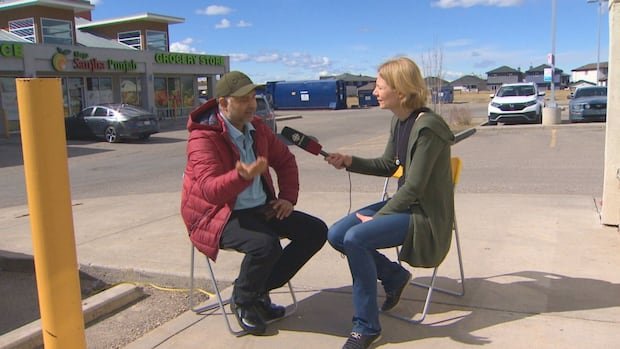Joana Valamootoo felt Canada was a welcoming place when she immigrated here from Mauritius in 2012, but that sense has faded in recent years as immigration numbers have gone up and up.
“I came here in 2012 on a francophone initiative program, an immigration program, and I was welcome, but I was also provided what I needed to succeed here,” she said.
She believes that’s no longer the case for newcomers to the country.
CBC has been asking people across the country about the issues that matter most to them in the April 28, 2025, federal election.
- What issue matters the most to you this federal election, and why? Share your personal stories with us at ask@cbc.ca.
While immigration has taken a backseat to concerns like national unity and tariffs, Valamootoo said it’s top of mind for her. She wants to hear leaders talk about how they will integrate newcomers into the country.
“I think the past three years there has been a lot of mistakes by the federal government with regard to how many people they were letting in.”
She feels that’s led to a rise in racism and a backlash against immigrants and international students, who’ve been blamed for crises in housing and education.
“I think we need a leader that can bring people together, instead of creating division,” she said.
As Canada’s population has pushed past 41 million people, Canadians and immigrants alike have expressed concern about whether the country has planned enough to incorporate new immigrants into workspaces, schools and homes. The Saskatchewan Urban Municipalities Association recently commissioned a poll, which found 68 per cent of Saskatchewan people surveyed online supported reducing immigration.
Parties lack vision to plan, says Calgary voter
Sanjeev Kumar came to Canada on a work permit in 2008 to work in Alberta’s restaurant industry and recently opened his own restaurant in northeast Calgary.
He’s also seen a rise in anti-immigrant sentiment, which he believes is intensified by immigrants being willing to work in minimum wage jobs and creating intense competition for work.
“Nobody has a job right now. People are struggling. Everyone is struggling. Groceries are so expensive,” he said.
Kumar said the problem hits international students and other newcomers particularly badly. He has students coming to him, asking for work.
“They are in college, about to finish, but they don’t have money … they don’t have food to eat.”
- Compare all the parties’ platforms on immigration using CBC’s tracker on election promises.
Kumar said these students and people on work permits also don’t have the same clear path to residency that he did when he came to Canada. Kumar got his permanent residency in three years.
“That time actually, when Harper government was there, I think everything is controlled,” he said, adding there needs to be a balance between immigration and integration.
“Right now there’s no balance there. They don’t know what they are doing.”
Since getting his citizenship, Kumar has voted Conservative, but said he’s not convinced either of the two main parties have a bold plan to bolster the economy and ensure there’s a stronger job market for newcomers and Canadians alike.
“They are just thinking, small thinking [like] we just take out carbon tax,” he said. “They don’t have a clear vision for Canada.”
Settlement services face cuts
Ali Abukar, CEO for the Saskatoon Open Door Society, said settlement services like his are among those that help newcomers integrate to Canada with things like employment training and language education. He said the federal government has scaled back money for these organizations as it reduces immigration targets, leading to program cuts at both the Saskatoon and Regina Open Door societies.
- Ukrainian newcomers in Edmonton scramble to find English classes as federal funding ends
- Federal funding for some B.C. newcomer support programs cut
Reducing immigrant and international student populations can’t be done hastily, Abukar said.
“A lot of the international students have been contributing a lot of money not only to schools and educational institutions, but also businesses and housing,” he said. He said immigrants will still be needed to help Canada resolve issues like the labour that’s needed to build houses.
It speaks to the pressing need for the next elected government to take a phased approach to integrating newcomers into Canada, Abukar said.
“Our [immigration] numbers didn’t become where they are at in just the switch of a light. And we can’t reverse them the same way,” he said.
“We all need to do better in terms of educating people and raising awareness and making sure that we’re building an inclusive … equitable society.”



